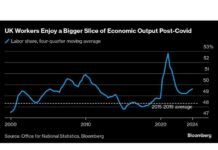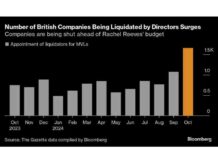Jeremy Hunt, the former Health Secretary, has been accused of attempting to suppress a report from the Office for Budget Responsibility (OBR) that reveals a £22 billion fiscal shortfall. The OBR report highlights the financial challenges facing the government and the potential impact on public services.
According to sources, Jeremy Hunt allegedly pressured the OBR to delay the release of the report, which was originally scheduled to be published this week. The report is said to contain projections of a significant gap between government spending and revenue, raising concerns about the sustainability of public finances.
Hunt’s actions have sparked criticism from opposition lawmakers, who have called for transparency and accountability regarding the government’s financial management. They argue that attempts to suppress the report undermine the principles of open governance and accountability to the public.
In response to the allegations, a spokesperson for Jeremy Hunt denied any attempts to suppress the OBR report. They stated that Hunt had simply requested additional time to review the report’s findings before it was made public. However, critics remain skeptical of this explanation, raising questions about the government’s commitment to transparency and fiscal responsibility.
The OBR report is expected to provide valuable insights into the state of the UK’s public finances and the challenges ahead. It will be closely watched by policymakers, economists, and the public as they assess the government’s ability to manage the country’s finances effectively.
The controversy surrounding Jeremy Hunt’s alleged actions highlights the importance of transparency and accountability in government. The public has a right to know about the financial challenges facing the country and how they will be addressed. Attempts to suppress vital information only serve to erode trust in government institutions and hinder informed decision-making.
As the debate continues, it is essential for policymakers to prioritize transparency and openness in financial matters. The OBR report should be released without delay, allowing for a thorough examination of the country’s fiscal situation and the development of effective solutions to address any challenges that may arise.
In conclusion, the OBR report on the £22 billion fiscal shortfall is a critical document that sheds light on the UK’s financial landscape. Attempts to suppress this report only raise concerns about the government’s commitment to transparency and accountability. Moving forward, it is crucial for policymakers to uphold these principles and ensure that the public is informed about the state of the country’s finances.






















